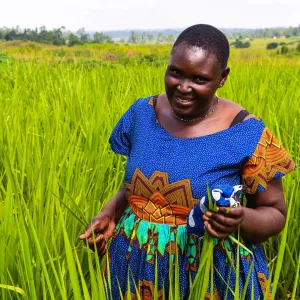Empowering Youth and Women through Forage Business in Western Kenya: Lessons from the Grass2Cash Project
Whereas agriculture is identified as a key sector to deliver economic growth in the Kenyan vision 2030, the youth are not effectively tapping into the employment and livelihood opportunities provided through agriculture. Some reasons for their low participation in agribusiness activities include the negative perception about agriculture, limited farming knowledge, and difficulties accessing land and capital for investment since many

Empowering Youth and Women through Forage Business in Western Kenya: Lessons from the Grass2Cash Project
Whereas agriculture is identified as a key sector to deliver economic growth in the Kenyan vision 2030, the youth are not effectively tapping into the employment and livelihood opportunities provided through agriculture. Some reasons for their low participation in agribusiness activities include the negative perception about agriculture, limited farming knowledge, and difficulties accessing land and capital for investment since many of the young people lack collateral to access loan. The Alliance of Bioversity and CIAT, through the Grass2Cash project seeks to change the narrative by building the capacities of youth and women groups and supporting them to engage in commercial forage production.
Agriculture is a key sector in the Kenyan economy with 33% of the country’s Gross Domestic Product (GDP) directly created through agriculture. At least 40% of the total employment, and 70% of the employment opportunities in the rural areas are provided by this sector (FAO, 2023).
At the same time the larger proportion of the country’s population are youth (18-35 years), and 80% of the currently unemployed are young people (MoA, 2018; RoK, 2019). Female youth are disproportionately affected. According to the World Bank database, 24% of female youth are not meaningfully engaged in employment or training, compared to 15% among male youth (World Bank, 2023).
Whereas agriculture is identified as a key sector to deliver economic growth in the Kenyan vision 2030, the youth are not effectively tapping into the employment and livelihood opportunities provided through agriculture (MoA, 2018). Some of the reasons for their low participation in agribusiness activities include the negative perception about agriculture, limited farming knowledge, difficulty accessing land, and capital for investment since many of the young people lack collateral to access loans (RoK, 2019). As such, the need to create new employment opportunities, especially in rural areas, and to empower the youth of either gender to take advantage of those opportunities cannot be overemphasized.

